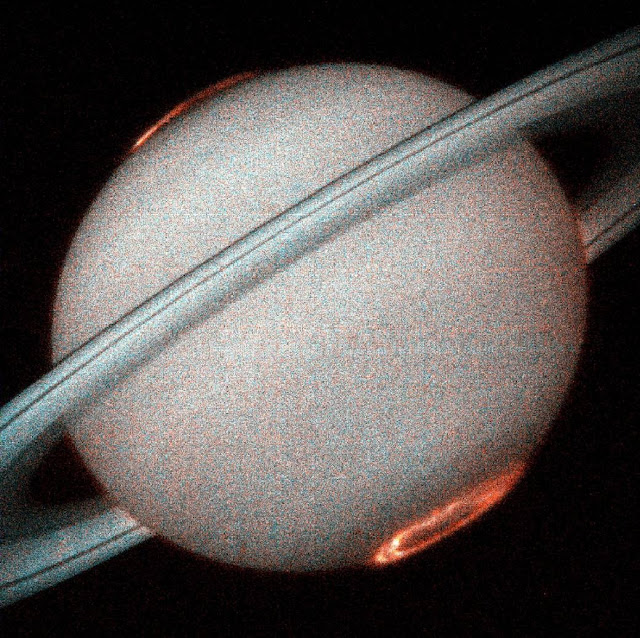Auroras Seen On Other Planets In Our Solar System
An aurora, sometimes referred to as a polar light, is a natural light display in the sky, predominantly seen in the high latitude (Arctic and Antarctic) regions. In northern latitudes, the effect is known as aurora borealis (or the northern lights). In high southern latitudes, it is known as the aurora australis (or southern lights).
They happen when huge amounts of energy from the sun hit the earth's magnetic fields, pushing electricity to the north and south poles.
But Earth isn't the only planet where aurora can be seen. Space scientists at NASA have been able to confirm that some of our closest neighbouring planets such as Jupiter and Saturn have their own auroras. Auroras have been observed on both Jupiter and Saturn, most clearly with the Hubble Space Telescope. Uranus and Neptune have also been observed to have auroras.
Source: en.wikipedia.org
 |
| The northern lights turn the sky green at Homary in Nordland, Norway. Image Credit: Tommy Elliasen/Barcroft Media |
 |
| A red aurora shimmers over Mo I Rana in Nordland, Norway. Image Credit: Tommy Elliasen/Barcroft Media |
They happen when huge amounts of energy from the sun hit the earth's magnetic fields, pushing electricity to the north and south poles.
 |
| Hubble Space Telescope captured stunning auroras on the poles of the largest planet in Solar System, Jupiter. Image Credit: NASA |
 |
| Hubble Space Telescope took this ultraviolet image of the planet, revealing a vivid aurora display raising thousands of miles above the cloud tops over both of the planet's poles. Image Credit: NASA |
Source: en.wikipedia.org
Auroras Seen On Other Planets In Our Solar System
 Reviewed by Vasanth
on
August 05, 2016
Rating:
Reviewed by Vasanth
on
August 05, 2016
Rating:
 Reviewed by Vasanth
on
August 05, 2016
Rating:
Reviewed by Vasanth
on
August 05, 2016
Rating:







